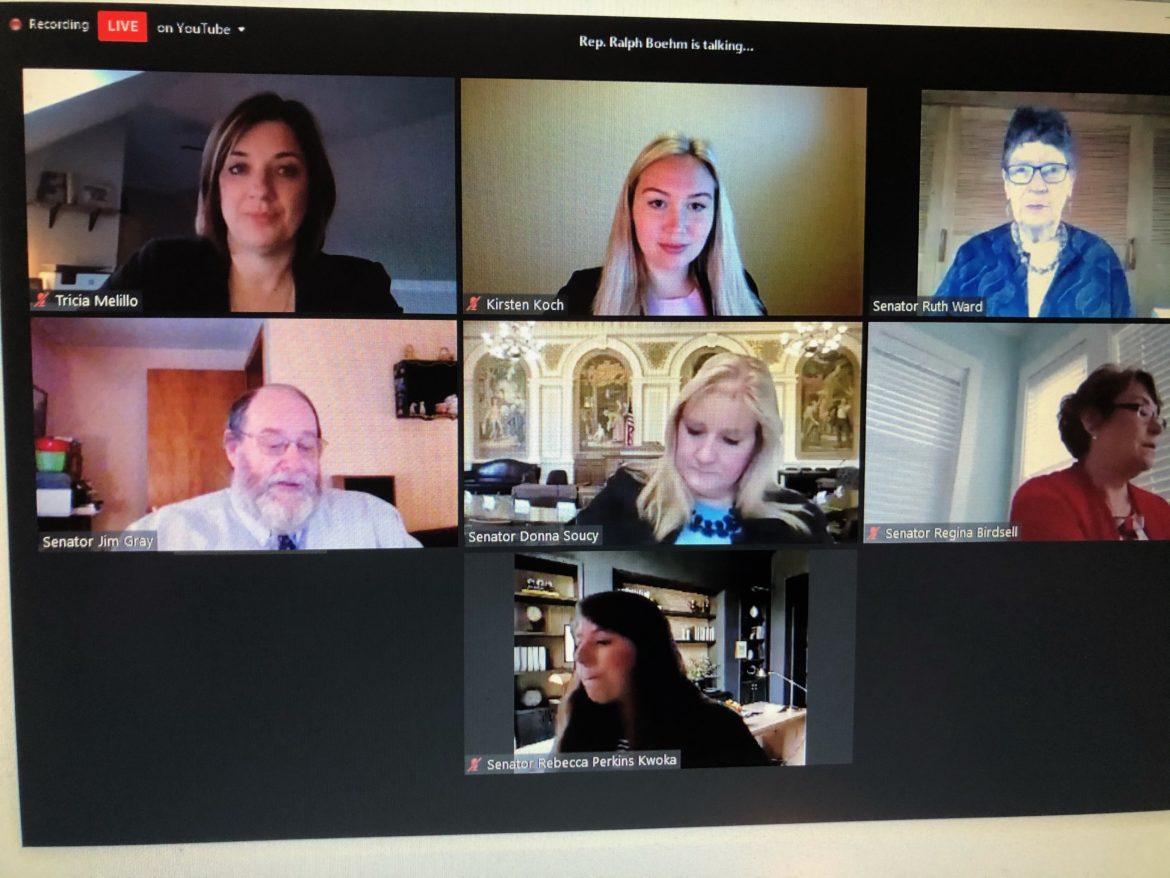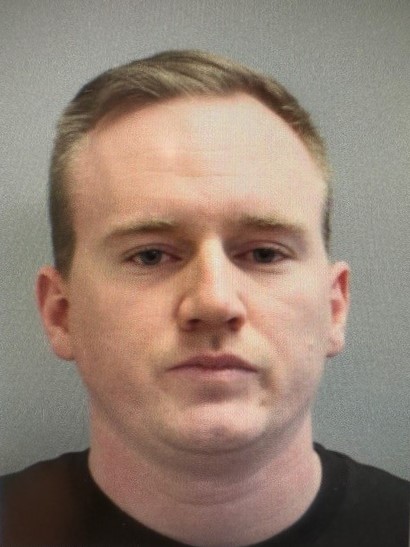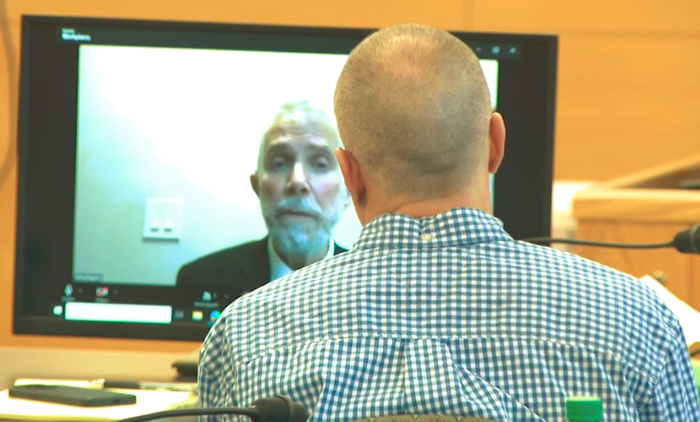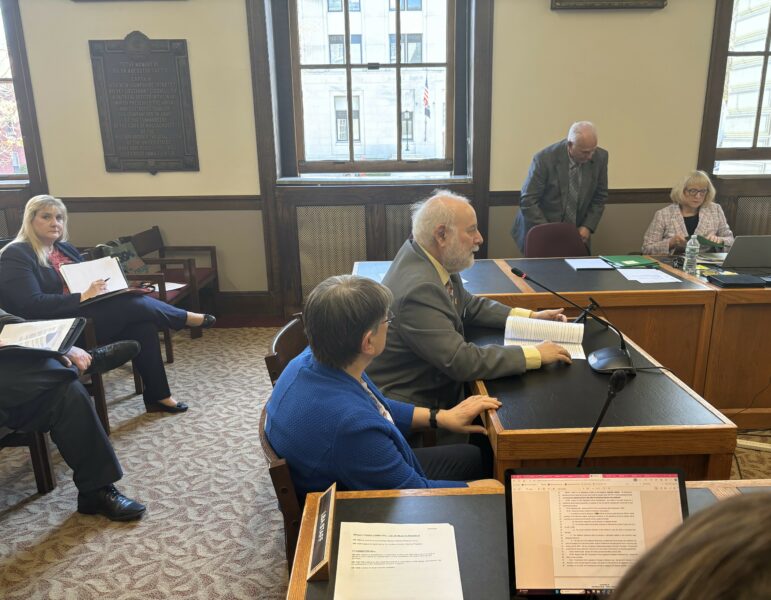By PAULA TRACY, InDepthNH.org
CONCORD – There was bipartisan support in a Senate committee for proposed legislation that would change the date of the state primary from September to June.
But Democrats said a Republican-backed bill requiring a person who registers to vote without any identification to have his or her photo taken before registering to vote is repetitive and not necessary.
They were among a handful of bills heard by the Senate Election Law and Municipal Affairs Committee Monday that have already passed the House.
Say Cheese
The state requires same-day registrants on election day to have a Polaroid-style camera take a photo of a person who has no photo identification. This bill would extend that requirement for anyone who goes to their town clerk or city hall prior to the election day or on election day, and it might mean that more of these cameras are needed at the state’s 330 polling locations.
State Rep. Timothy Horrigan, D-Durham, was the only person to speak to the bill. He said it was unnecessary.
House Bill 523 passed the House 197-172 on April 8 with largely Republican support.
Horrigan said his university town has very few people who show up at the polls without a photo ID and the only person to actually use the Polaroid system on the first year it was used was a well-known voter who wanted to test the system.
House Bill 523 would include about $33,000 for the Secretary of State’s office to buy Polaroid-style cameras at $80 apiece, and the film that instantly produces an image but does not store it digitally.
State Rep. Betty Gay, R-Salem, the prime sponsor, was not able to electronically connect with the committee for the public hearing. The bill would add to existing law in RSA 654:12.
A copy of the bill is here. http://www.gencourt.state.nh.us/legislation/2021/HB0523.html
It reads: “This bill requires voters who register to vote by using a qualified voter affidavit or sworn statement on the election day registration form instead of other approved identification to have their photograph taken at the time of registration.
“It would add III-a. The supervisors of the checklist, town or city clerk, or election day official shall take a photograph of any person who registers using a qualified voter affidavit or sworn statement on the general election day registration form. Such photograph shall be retained in the same manner as qualified voter affidavits pursuant to RSA 33-A:3-a, CXLI(e).”
Deputy Secretary of State David Scanlan addressed the fiscal note on the bill. He said the way he understood the bill is it follows the process for filing a ballot without an ID. When that law was enacted in 2012, the Secretary of State’s office purchased cameras for each polling place. They are Polaroid-style and the film comes out of the camera and develops instantly.
The reason there is a fiscal note is that “we figured there will be additional cameras needed in at least some of the polling places” if this is going to be a requirement of same-day voting. Those would likely be the larger towns where more than one camera will be needed.
The existing cameras are 10 years old or will be for the next election cycle, he said, and while there is no indication they are failing, at some point they will need to be replaced.
These records are kept in different files, Scanlan said, noting supervisors of the checklist and clerks work close to each other but the town clerk would be responsible for keeping the challenged voting data.
Sen. Regina Birdsell, R-Hampstead, asked if the state thought about going to digital photos. Scanlan said in 2012 when the initial legislation passed there was concern by some that digital images could be stored inside a device. So to get away from that debate, the Secretary of State’s office chose a camera that just produced a photograph without a digital memory.
“I don’t know if people today are more willing,” he said to have their photos digitally taken and stored.
Sen. Jim Gray, R-Rochester said if digitally taken, it might require the cost of a printer, which would be a higher cost per polling place and Scanlan agreed.
Gray asked Scanlan if it was correct that if you are filling out a challenged voter request, that data is only required to be kept for the 22 months after but a voter registration record is kept for seven years after the voter is removed from the checklist.
Sen. Rebecca Perkins Kwoka, D-Portsmouth, said she would have liked to have heard from the sponsor but she thought it seemed the bill was redundant and more important that the photo be taken at the time the vote is cast, as is currently done.
“Taking the photo once is the most we should do but is there a reason at registration since we are going to take it when they vote” if they come without a photo ID then as well, she asked.
Gray said he was not trying to make it onerous but there were two different laws currently on how long the photo can be retained.
“I don’t believe it will require a lot of extra cameras,” he said. “There may be some need to replace some of those.”
Perkins Kwoka called it an “extremely small problem and I don’t see the point.”
Sen. Donna Soucy, D-Manchester, said the significance is when someone votes.
“I just don’t see the need,” she said, for the bill.
State Primary Change
A bill that would move the New Hampshire State Primary to elect governor, legislators, and Congress from the second Tuesday in September to the first Tuesday in June, was seen by some as a way for those who are not an incumbent to get more time to campaign.
This year, there were 56 days between the state primary and the general election. This would not affect the Presidential Primary which New Hampshire is well known for hosting first in the nation.
Rep. Ross Berry, R-Manchester, told Senators that House Bill 98 http://www.gencourt.state.nh.us/legislation/2021/HB0098.html to move state primary back in the calendar is a priority on the House side.
He said it would end what he called the “incumbent protection program.” Berry said while New Hampshire is known for its first-in-the-nation’s Presidential Primary, it is among the last in the nation to vote on its state primary, competing for last with Rhode Island.
“It creates some interesting effects,” he said, which he argued benefit the incumbent. He said voters in state primaries are “vastly different” than general elections.
And it is hard for newcomers or anyone to get their name out when there are only six to seven weeks between them.
June would put the state with the majority of the nation’s state primaries. He said there have been concerns raised about turnout being lower in June.
But he said a UNH poll found “zero effect” in the number of people participating in a primary.
“It is my belief voters should have the opportunity to hear from both sides equally,” Berry said. “Ultimately, that’s democracy at work.”
Sen. Soucy said she is very supportive of the concept. “I think it is long overdue,” Soucy said. But she had some questions about the language of the bill and about whether its implementation date should be this year or the following year given redistricting.
Berry said he expects there will be legal challenges to redistricting. Ten years ago there were three legal challenges all settled within a month, he said.
The bill would give the Secretary of State additional powers of discretion in setting filing dates. Soucy asked if there was any talk about another date, say August.
Berry said August doesn’t really accomplish the goal for a longer period of time.
“We chose the middle of the calendar because that is what the rest of the country does,” he said.
Sen. Gray asked what would happen if the Senate moved the bill’s effective date to after the next primary.
“We would begrudgingly agree to that,” Berry said.
Asked specifically why they would prefer implementation now, Berry said: “We want to get it resolved as quickly as possible…for the voters.”
Alvin See of Loudon said he was in support of the bill. He said it does what the sponsor wishes to make it more of an equal opportunity for candidates. The last time the state primary date was changed was in 1910.
The committee took no votes on those bills but did vote unanimously to support House Bill 77 requiring city and town clerks to provide daily notification to the Secretary of State of any filings for elected offices during the filing periods.
Scanlan said it was probably a good idea and noted right now, clerks use the mail. There have been past problems, he said, where mail did not get to Concord in a timely manner.





